WRITEBLR: Here be writing advice, inspiration, and encouragement.Writer ~ Visual Artist ~ Musician ~ She/her ~ Currently writing a Perseus/Medusa myth retelling!
Don't wanna be here? Send us removal request.
Photo

“i will look after it until you return”
4K notes
·
View notes
Photo


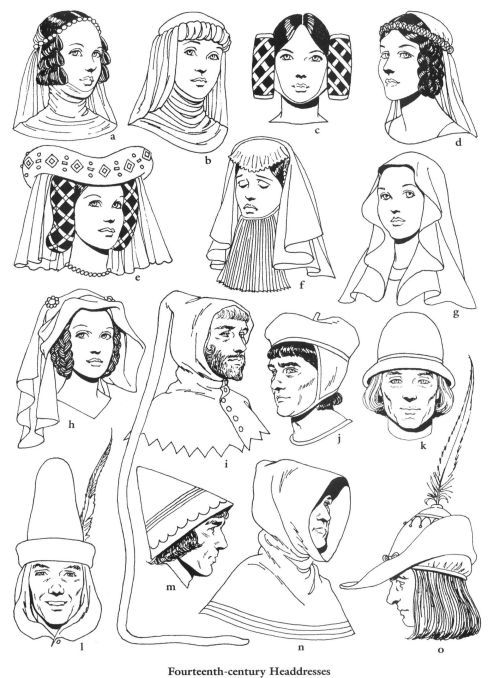






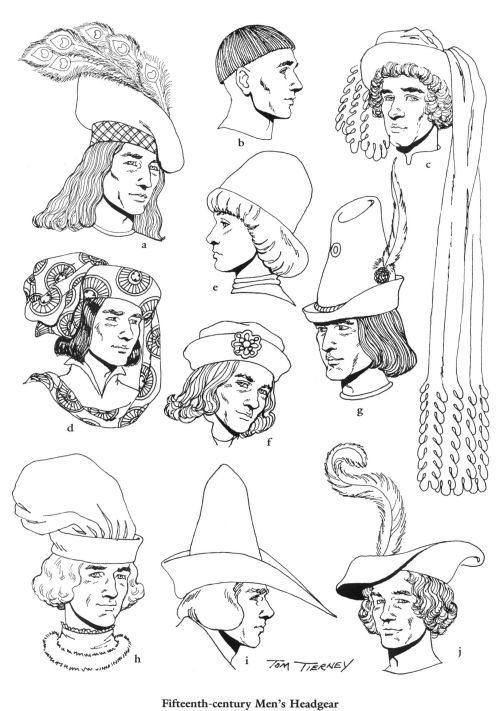

14th- and 15th-century medieval fashions by Tom Tierney
5K notes
·
View notes
Text
Calling all visually impaired thinkers!
TL;DR: writer is looking for visually impaired people to advise on the writing of a blind protagonist. It would make my day if you would message me, or spread the word!
Full post:
Hi! I’m a sighted writer of fantasy in the process of creating a blind protagonist for my new project, a novel based on the Ancient Greek myth of Perseus and Medusa. It has three protagonists:
Perseus, a son of Zeus who would rather sing hymns to the gods than draw a sword to prove his glory to them.
Petra, a priestess of Athena who wants far more than the neat temple life she was assigned.
Medusa, a young woman reeling from being transformed into a monster, but with the power to save the world… or end it.
Why do I want to write this story? Because Medusa didn’t get a happy ending. I’m going to give her one… without changing the myth.
Now, why this post? Petra was born blind, and I want to get that aspect of her life right. I’ve binged several blind YouTube channels and am reading whatever articles/books I can get my hands on, but I’m still going to make dumb sighted person mistakes while writing. So, I’m looking for visually impaired people who would be willing to talk to me about both micro and macro level details of the story: everything from your experience in getting around in well-known places (is counting steps a thing?) to your opinion about Petra’s overall character arc. Also, if you’re interested in Greek mythology I’m HERE to discuss it with you (lord knows my newly-acquired knowledge about Mycenaean Greece needs to go somewhere), and if you’re a writer I would love to take a stab at being critique partners! Let me know what your preferred method of communication is and I’ll be there.
Even if you can’t provide such feedback, any suggestions for books/fanfiction/movies/etc. about visually impaired protagonists, with positive reviews from the visually impaired community, would be fantastic! I’ll reblog this with a list of media with positive representations that I’ve found.
14 notes
·
View notes
Photo
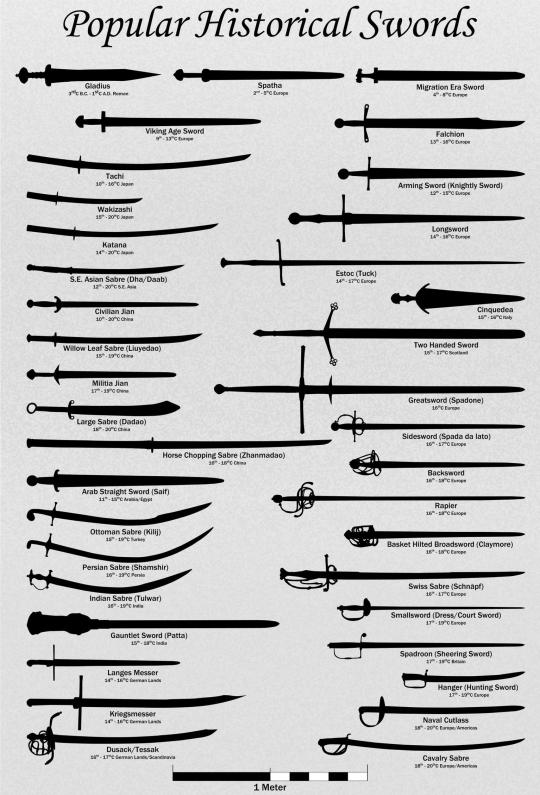
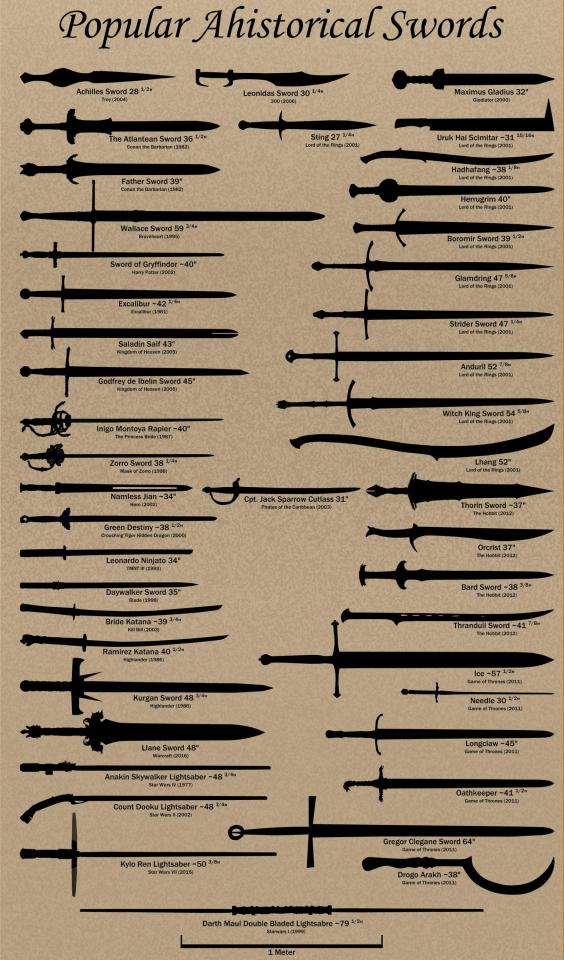
Popular Historical Swords and Popular Fictional Swords, by u/Dlatrex
40K notes
·
View notes
Text
5 frustrating workshop rules that made me a better writer
Throughout the 15 workshops I joined in college and grad school, I encountered two types of writing rules.
First, there were the best-practice guidelines we’ve all heard, like “show don’t tell.” And then there were workshop rules, which the professor put in place not because they’re universal, but because they help you grow within the context of the workshop.
My college’s intro writing course had 5 such rules:
No fantasy, supernatural, or sci-fi elements.
No guns.
No characters crying.
No conflict resolution through deus ex machina.
No deaths.
When I first saw the rules, I was baffled. They felt weirdly specific, and a bit unfair. But when our professor, Vinny, explained their purpose (and assured us he only wanted us to follow the rules during this intro workshop, not the others to come), I realized what I could learn from them.
1. No fantasy, supernatural, or sci-fi elements.
Writers need to be able to craft round characters, with clear arcs. While you can hone those skills writing any type of story, it can be more difficult when juggling fantastical elements, because it’s easy to get caught up in the world, or the magic, or the technology, and to make that the focus instead of the characters. So Vinny encouraged us to exclude such elements for the time being, to keep us fully focused on developing strong, dynamic characters.
2. No guns.
Weapons have a place in many stories, but when writers include a gun, they often use it to escalate the plot outside of the realm of personal experience and into what Vinny called “Hollywood experience.” He wanted us to learn how to draw from our own observations and perceptions of life, rather than the unrealistic action, violence, and drama we’d seen in movies, so he made this rule to keep us better grounded in our own experiences.
3. No characters crying.
When trying to depict sadness, writers often default to making characters cry. While there’s nothing inherently wrong with that, tears are just one way to show grief, and they aren’t always the most subtle or emotionally compelling. That’s why Vinny challenged us to find other ways to convey sadness — through little gestures, strained words, fragile interactions, and more. It was difficult, but opened us up to depicting whole new gradients of grief and pain.
4. No conflict resolution through deus ex machina.
This is the only one of the rules I’d say is generally universal. Meaning “God from the machine,” deus ex machina is a plot device where a character’s seemingly insurmountable problem is abruptly resolved by an outside force, rather than their own efforts. These endings are bad for various reasons, but Vinny discouraged them because he wanted us to understand how important it was for our characters to confront their struggle and its consequences.
5. No deaths.
Death is inherently dramatic and can be used to good effect, but many writers use death as a crutch to create drama and impact. Writers should be able to craft engaging, meaningful stories, even without killing off their characters, so this rule challenged us to find other methods of giving weight to our stories (such as through internal conflict).
How these rules helped me grow as a writer
First things first, I’ll say it again: apart from #4 (deus ex machina), these rules were never meant to be universally applied. Instead, their purpose was to create temporary barriers and challenges to help us develop key skills and write in new, unfamiliar ways.
For me, the experience was invaluable. I liked the way the rules challenged and stretched my abilities, driving me to write stories I’d have never otherwise attempted. They made me more flexible as a writer, and while I don’t follow the rules anymore (I LOVE me some fantasy), I’ll always be thankful for how they shaped my writing.
My recommendation to you?
Give some of these rules a shot! Follow them temporarily while writing 2-4 short stories — but remember to always keep their purpose in mind, because the rules themselves will only help if you understand what they’re trying to achieve.
Write with purpose, and you’ll always be growing.
— — —
For more tips on how to craft meaning, build character-driven plots, and grow as a writer, follow my blog.
11K notes
·
View notes
Text
Calling all visually impaired thinkers!
TL;DR: writer is looking for visually impaired people to advise on the writing of a blind protagonist. It would make my day if you would message me, or spread the word!
Full post:
Hi! I’m a sighted writer of fantasy in the process of creating a blind protagonist for my new project, a novel based on the Ancient Greek myth of Perseus and Medusa. It has three protagonists:
Perseus, a son of Zeus who would rather sing hymns to the gods than draw a sword to prove his glory to them.
Petra, a priestess of Athena who wants far more than the neat temple life she was assigned.
Medusa, a young woman reeling from being transformed into a monster, but with the power to save the world… or end it.
Why do I want to write this story? Because Medusa didn’t get a happy ending. I’m going to give her one… without changing the myth.
Now, why this post? Petra was born blind, and I want to get that aspect of her life right. I’ve binged several blind YouTube channels and am reading whatever articles/books I can get my hands on, but I’m still going to make dumb sighted person mistakes while writing. So, I’m looking for visually impaired people who would be willing to talk to me about both micro and macro level details of the story: everything from your experience in getting around in well-known places (is counting steps a thing?) to your opinion about Petra’s overall character arc. Also, if you’re interested in Greek mythology I’m HERE to discuss it with you (lord knows my newly-acquired knowledge about Mycenaean Greece needs to go somewhere), and if you’re a writer I would love to take a stab at being critique partners! Let me know what your preferred method of communication is and I’ll be there.
Even if you can’t provide such feedback, any suggestions for books/fanfiction/movies/etc. about visually impaired protagonists, with positive reviews from the visually impaired community, would be fantastic! I’ll reblog this with a list of media with positive representations that I’ve found.
14 notes
·
View notes
Text
beta reading
I’ve been delving into the fascinating purgatory that is getting your story beta read (and beta reading for other folks too), and I’ve found that a lot of newbies to beta reading don’t realize that it is not the same as being an editor.
So here is what you need to do if you’re beta reading someone else’s work.
Firstly, the purpose of beta reading is to help the writer understand what it’s like to casually read their story for the first time, so what’s most useful for the writer is for you is to report on your reading experience. You should read the story at your own pace (but preferably, make sure you can actually get around to reading it). If the author gives you the option to comment directly on their doc, you should feel free to write down your feelings on the story as you have them. You ought to:
focus on your experience and mood, such as whether you became confused or bored, felt sad, or got excited
note places that stood out to you, such as where you found an event unrealistic, too graphic compared to the rest of the story, etc
note which characters you do and don’t like, and why
give a brief summary of whether you enjoyed a given chapter or not, and why
You don’t need to:
go out of your way to fix grammar, spelling, etc (though you can point it out if it’s bad enough to make your reading experience frustrating)
suggest any solutions to problems you noticed (unless the author directly asks for suggestions, just pointing out the problem is plenty helpful enough; remember, you’re just here to give perspective)
read the story more than once
feel obligated to read the story the whole way through if you don’t have the time to keep reading
feel obligated to read the whole story through if you lose interest
If you can’t continue, let your writer know where you stopped reading and why. It’s incredibly helpful for them to know when and where a reader is no longer willing to keep going. If everyone wants to stop reading at Chapter Fifteen, then the writer probably needs to change Chapter Fifteen.
It’s also worth asking what the writer wants out of the process. Some writers use beta reading to find plot holes to plug up later. Others just want a little positive feedback to give them the courage to keep going. And writers like me want to make sure that their work is eliciting the intended emotional response. But, if a writer wants you to focus only or mainly on fixing their grammar, spelling, etc… they’re using you. That’s the job of a paid copy editor. Not a free beta reader.
And that’s it for beta reading!
983 notes
·
View notes
Text
You see the Grim Reaper and ask if it’s your time. Death checks a clipboard and says “Nope. Looks like you’re not due for another… three thousand, one hundred and forty-one years? That’s weird. Also, how can you see me?”
7K notes
·
View notes
Text
Noooooo I’m not reusing the same tropes in all my WIPs, I’m just (checks notes) “creating an author brand”
36K notes
·
View notes
Text
VISUALLY IMPAIRED MEDIA/RESOURCES MASTER LIST
(always updating; let me know if something on this list is not a positive representation)
Visually impaired YouTubers:
Molly Burke
Tommy Edison
Fashioneyesta
James Rath
The Blind Life
Attitude (documentary collection, including documentaries about visually impaired people)
Books with visually impaired characters/protagonists/memoirs:
She is not Invisible by Marcus Sedgwick
The Story of My Life by Helen Keller (and yes, I know being deaf-blind isn’t the same)
Tomorrow, When the War Began series by Morris Gleitzman (?)
TV shows:
See (2019, Apple TV+)
Visually impaired writers (I’ll add you!):
Kody Keplinger
To come (hopefully): movies, fanfiction...
Calling all visually impaired thinkers!
TL;DR: writer is looking for visually impaired people to advise on the writing of a blind protagonist. It would make my day if you would message me, or spread the word!
Full post:
Hi! I’m a sighted writer of fantasy in the process of creating a blind protagonist for my new project, a novel based on the Ancient Greek myth of Perseus and Medusa. It has three protagonists:
Perseus, a son of Zeus who would rather sing hymns to the gods than draw a sword to prove his glory to them.
Petra, a priestess of Athena who wants far more than the neat temple life she was assigned.
Medusa, a young woman reeling from being transformed into a monster, but with the power to save the world… or end it.
Why do I want to write this story? Because Medusa didn’t get a happy ending. I’m going to give her one… without changing the myth.
Now, why this post? Petra was born blind, and I want to get that aspect of her life right. I’ve binged several blind YouTube channels and am reading whatever articles/books I can get my hands on, but I’m still going to make dumb sighted person mistakes while writing. So, I’m looking for visually impaired people who would be willing to talk to me about both micro and macro level details of the story: everything from your experience in getting around in well-known places (is counting steps a thing?) to your opinion about Petra’s overall character arc. Also, if you’re interested in Greek mythology I’m HERE to discuss it with you (lord knows my newly-acquired knowledge about Mycenaean Greece needs to go somewhere), and if you’re a writer I would love to take a stab at being critique partners! Let me know what your preferred method of communication is and I’ll be there.
Even if you can’t provide such feedback, any suggestions for books/fanfiction/movies/etc. about visually impaired protagonists, with positive reviews from the visually impaired community, would be fantastic! I’ll reblog this with a list of media with positive representations that I’ve found.
14 notes
·
View notes
Text
Calling all visually impaired thinkers!
TL;DR: writer is looking for visually impaired people to advise on the writing of a blind protagonist. It would make my day if you would message me, or spread the word!
Full post:
Hi! I’m a sighted writer of fantasy in the process of creating a blind protagonist for my new project, a novel based on the Ancient Greek myth of Perseus and Medusa. It has three protagonists:
Perseus, a son of Zeus who would rather sing hymns to the gods than draw a sword to prove his glory to them.
Miska, a priestess of Athena who wants far more than the neat temple life she was assigned.
Medusa, a young woman reeling from being transformed into a monster, but with the power to save the world... or end it.
Why do I want to write this story? Because Medusa didn’t get a happy ending. I’m going to give her one... without changing the myth.
Now, why this post? Miska lost most of her sight at age fourteen, and I want to get that aspect of her life right. I’ve binged several blind YouTube channels and am reading whatever articles/books I can get my hands on, but I’m still going to make dumb sighted person mistakes while writing. So, I’m looking for visually impaired people who would be willing to talk to me about both micro and macro level details of the story: everything from your experience in getting around in well-known places (is counting steps a thing?) to your opinion about Petra’s overall character arc. Also, if you’re interested in Greek mythology I’m HERE to discuss it with you (lord knows my newly-acquired knowledge about Mycenaean Greece needs to go somewhere), and if you’re a writer I would love to take a stab at being critique partners! Let me know what your preferred method of communication is and I’ll be there.
Even if you can’t provide such feedback, any suggestions for books/fanfiction/movies/etc. about visually impaired protagonists, with positive reviews from the visually impaired community, would be fantastic! I’ll reblog this with a list of media with positive representations that I’ve found.
14 notes
·
View notes
Text
I will never ever ever ever EVER be over Character A barely surviving something and Character B being so overcome with relief they just have to clutch A and bury their face in A's neck while A tells them it's okay.
27K notes
·
View notes
Text
You ever realize that Jaskier has known Geralt for twenty-two years. He met Geralt when he was eighteen, he’s had Geralt in his life for over half of his lifetime.
Friends, despite his pitiful grumbling objections.
We talk about how Jaskier has been the only constant in Geralt’s life, but likely the same can be said for Jaskier. He’s been on and off travelling the world with this man he’s known since he was just a lad, who gave him a name and whose name he polished and shined in return. He always came back, shrugged off the grumpy demeanor and found a home with that old witcher.
Spent years together, literal years under the stars and having adventures. Over two decades of Jaskier performing in taverns while Geralt drinks in the back, watching him with fond annoyance. Twenty-two years of Geralt hiding smiles by ducking his head and turning away, of quiet snorts of amusement and Jaskier crowing that he never knew Geralt could laugh.
The young bard has become a man before Geralt’s very eyes. Geralt is an old man, been around for over a hundred years. But he’s never had someone quite like Jaskier, willing to follow him around and put up with his silence and emotional damage.
Twenty-two years. And he threw it all away in a minute of heated passion.
1K notes
·
View notes
Text
Severely underrated and underused trope:
When Character B is an old friend turned villain, and is trying to fight Character A but they refuse to fight back, so Character B is forced to continue attacking until they eventually stop and slowly break down sobbing
14K notes
·
View notes
Text
stopping at an understaffed, overcrowded fast food restaurant while on a road trip and crouching over your phone with your chicken sandwich at a corner table like a weary adventurer eating a bowl of unidentifiable stew at a nameless inn, the only one for miles of moor and wood, taking in the chatter around you but speaking to none before pulling your cloak back up over your head and taking t' the road once more
107K notes
·
View notes
Photo
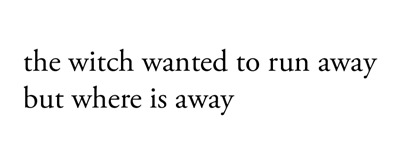
Rebecca Tamás, from Poems; “Witch,” originally published c. 2019
7K notes
·
View notes
